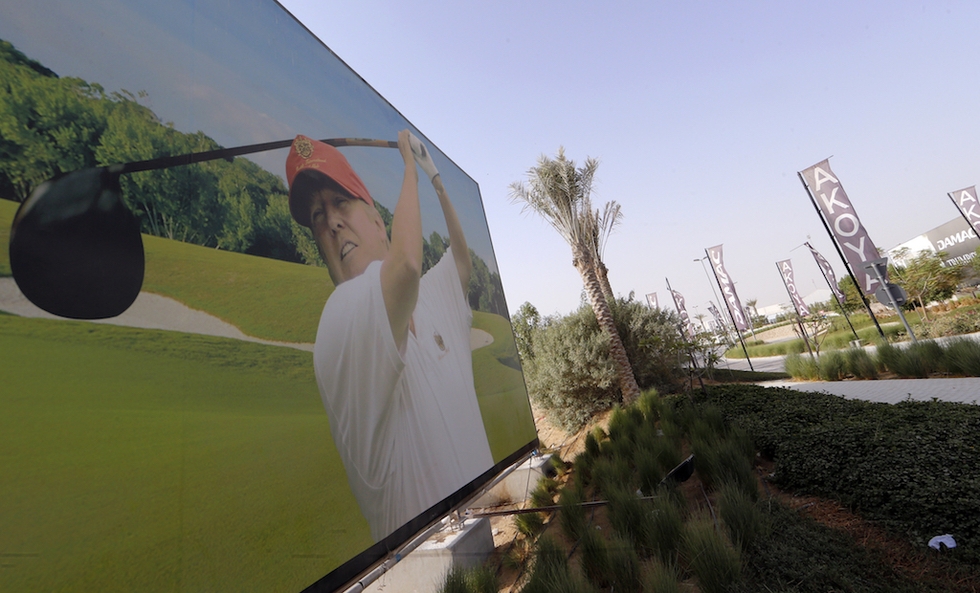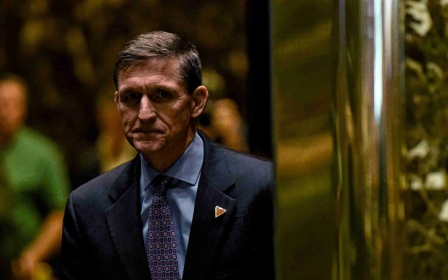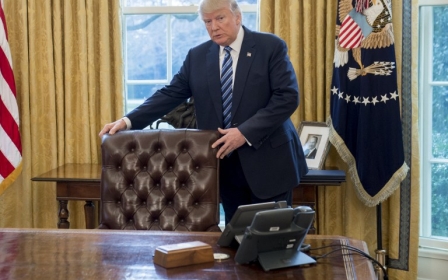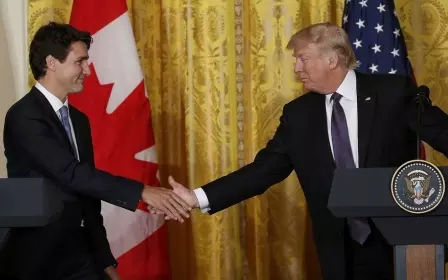Trump sons to open 'iconic' Dubai golf course

US President Donald Trump's sons are set to inaugurate a branded golf course in Dubai on Saturday, the first launch for the business empire since Trump took office in January.
"Join us as we celebrate the grand opening of the iconic golfing destination Trump International Golf Club Dubai," read the invitation from DAMAC Properties, a major regional luxury real estate developer.
The invitation card, embossed in gold and sealed in a golf course print envelope, specified the dress code as either business attire or national dress.
Donald Trump Jr and Eric Trump are to attend.
The launch comes just over one month after Trump, then president-elect, said he had rejected a $2 billion deal in Dubai as a personal, and not official, move.
"I didn't have to turn it down," Trump told a press conference in New York. "But I have a no-conflict-of-interest provision as president."
Since his November victory, Trump has publicly said he would remove himself from running his business empire, transferring corporate control to his sons. But he has resisted divesting despite calls by ethics organisations.
Conflict of interest
The Trump Organization pledged on 11 January it would no longer pursue new deals outside of the United States. The 18-hole Dubai golf course however predates the pledge, with talks surrounding the project going back to 2015.
Critics have raised questions of conflict of interest over Trump's business ties on the grounds that while the president is no longer nominally in charge of his eponymous empire, he may continue to profit from it.
Ethics lawyers in the United States are now suing Trump alleging violation of the US constitution.
Watchdog group Citizens for Responsibility and Ethics (CREW) filed a lawsuit in January alleging that Trump's business ties violate an emolument clause in the constitution which prohibits the acceptance of payments from foreign governments by US officials.
US presidents are not legally required to give up business or investments while in office.
The UAE has been one of the few Muslim countries to defend a controversial ban on Muslims from seven countries imposed by the US President in an executive order.
UAE defends Trump
Sheikh Abdullah bin Zayed al-Nahyan, whose country is a close ally of Washington, said it was "wrong to say" that the decision by the new US administration was "directed against a particular religion".
"The United States has made... a sovereign decision," he said in early February at a joint press conference with his Russian counterpart, Sergei Lavrov, pointing out that it was "provisional" and did not apply to "the large majority" of the world's Muslims.
In his defence of the ban which has stirred widespread protests across the globe, Sheikh Abdullah also said that some of the countries on the blacklist had "structural challenges" on the security front that they still had to overcome.
Trump's controversial executive order singled out citizens from Iran, Iraq, Libya, Somalia, Sudan, Syria and Yemen to prevent "radical Islamic terrorists" from entering the United States.
But the 90-day ban, which could still extend to other states, exempted Muslim-majority nations associated with major attacks in the West.
Last week a US federal appeals court panel upheld a temporary suspension of the ban, which Trump has promised to challenge in the courts.
New MEE newsletter: Jerusalem Dispatch
Sign up to get the latest insights and analysis on Israel-Palestine, alongside Turkey Unpacked and other MEE newsletters
Middle East Eye delivers independent and unrivalled coverage and analysis of the Middle East, North Africa and beyond. To learn more about republishing this content and the associated fees, please fill out this form. More about MEE can be found here.




